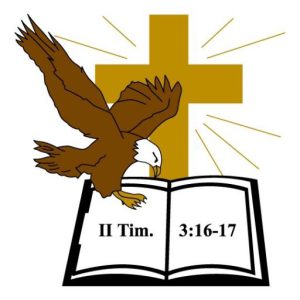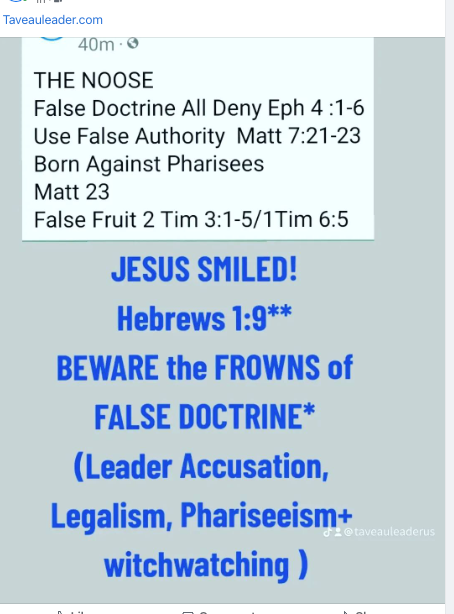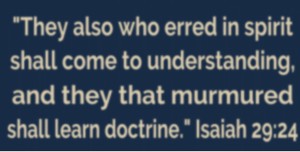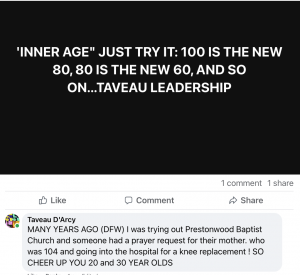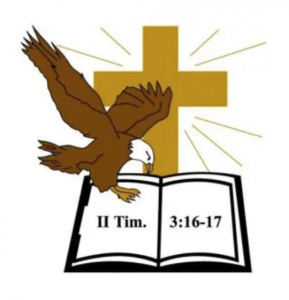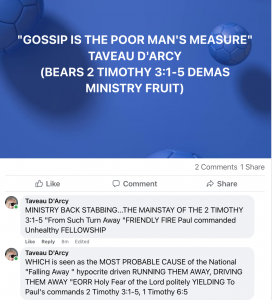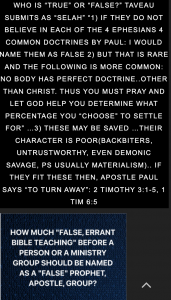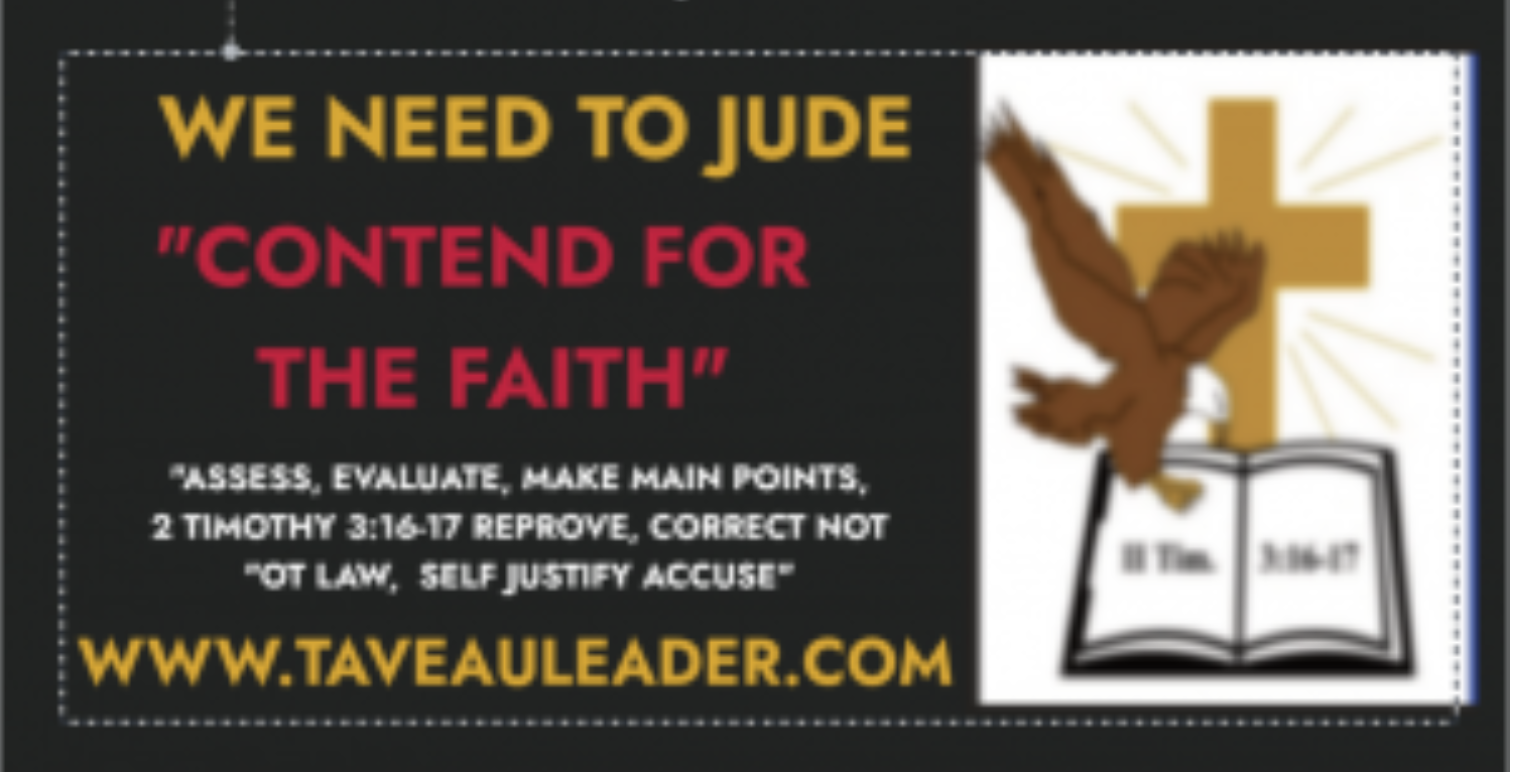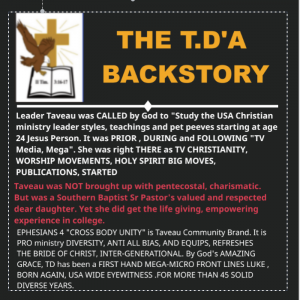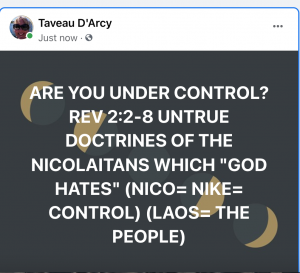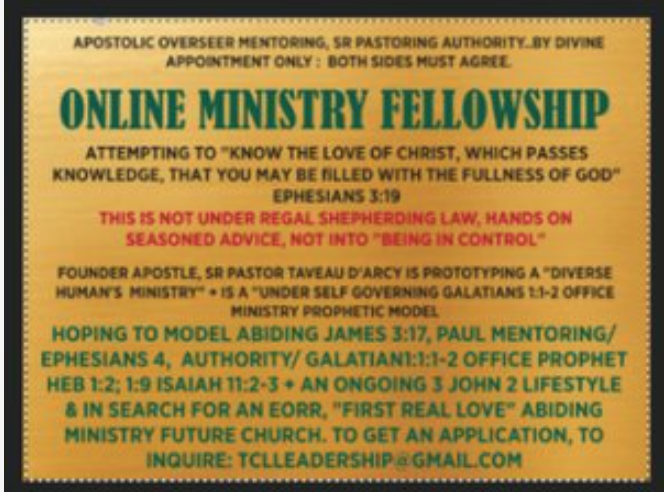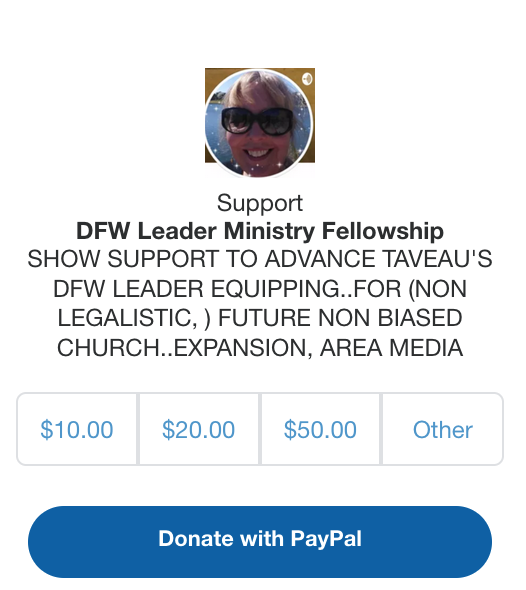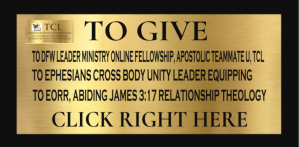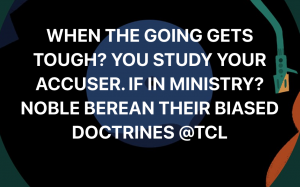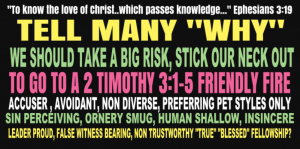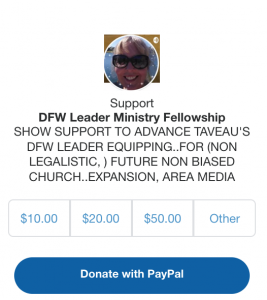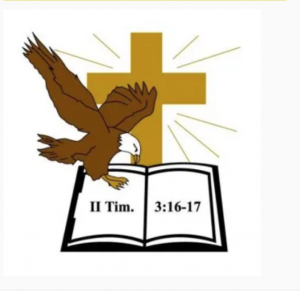
PART 2 “THE Ai AND I” ARE YOU SUBMITTED? MINISTER JESUS & FIRST CHURCH EPH 5:21

DFW Leader Ministry Fellowship. Dr Taveau D’Arcy…AI PERSPECTIVE…NOTE: This was first posted June 13, 2023 as this Chat GBT Ai I intentionally post the date of any Chat Ai as I assess it as ‘safe’ for now..yet we know the world..and that right now a new form of “THE HOLY BIBLE” is being “newly altered” by Ai to make Jesus and the Message different..so as to make it conform to the world system..(ALSO tell your peers) and I acknowledge that while I feel safe for now..that all media, AI are prone to being altered to the left perspective..sooner or later. NOTE My TCL “USE OF AI at the top of most TCL ministry websites) for I want NO ACCUSATION about any Ai use…later
AND FOR ANYONE’S RECORD: as I have a considerable life long big history of on going Bible Study I PURPOSELY read over EVERY Ai answer to ENSURE it is what I perceive to be Bible accurate…and TRUE!!
(NOT JUST TOSSING IT UP THERE FOR ALL TO VIEW!!)

CBU= T’S New CROSS BODY UNITY ( EPHESIANS 4) HOLY SPIRIT LED DIVERSE COMMUNITY AND COLLABORATIVE MOVE www.crossbodyunity.com

“THE SCOWL OF FALSE DOCTRINE”**
**THE ACCUSING, MIRTHLESS,SUBLIMINAL & OVERT...CONTROLLING LETTER OF THE LAW, PHARISEEISM, AUTOCRATIC AND DOMINATING, ENTRENCHED PERSONALITIES, WHO ARE “INTO” WRONG, FALSE, UNTRUE CRITICAL FALSE TEACH..AND WHO KEEP EVER SPYING..MINISTRY KEEPING “CHRISTIAN AGAINST CHRISTIAN” ALL SORTS OF MINISTRY TABS..EACH ONE UNDER THE GUISE OF “OUR KIND’ OF MINISTRY AUTHORITY…..
AGAIN, NEVER ANY AUTHENTIC CHRIST JESUS (AS IF QUALIFYING FOR) HEBREWS 1:9 “JOY”…AS THEY’RE (MOSTLY) UNDEVELOPED IN THEIR BIG BOSS LOVELESS, SENSE OF HUMOR…ALL OF WHICH TOGETHER, MAY SERVE THE NEW VISITOR AS A “WARNING RED FLAG” OF POSSIBLE FUTURE BETRAYAL, BACKSTABBING, MILLIONS OF RUMORS AND DARK SUBTLE (EVEN ELITE WHITE WITCHCRAFT UNDERLYING, WITH NO GIVEN MERCY)… MAJOR BIG TOP CONTROL.

PART 2 “THE Ai AND I” … CHRIST WITH REGARD TO ” SUBMISSION”‘
AUTHENTIC MINISTER JESUS
Was the Entire First Church Ephesians 5:21 ?
Non Elite Paul Ephesians 5:21 “Mutual submission in the fear of the Lord”
Was Jesus a Ministry Big Boss Authoritarian? Less than, ” piece of personal property” (little?)…women?
And far more!
(C)2023 Taveau D’Arcy All copyrights reserved under international law
AFTER MORE THAN 25 YEARS OF ENCOUNTERING THIS IN MAINLY CHARISMATIC WHITE LP…we seek it’s deliverance from the Hebrews 10:25 Houses of God:
And the MAIN PURPOSE in this is to stop abuse, legalism, accusation and murder by the religious spirit which is demonic and character assassinating, reproduces much Evil Eye, Gossip and False Witness, Ruins Many a Reputation, uses witchcraft “(it resembles 2 Timothy 3:1-5 “dysfunction” which Paul says “we must flee from”…

TAVEAU ASKS CHAT GBT Ai ;*Especially on Behalf the Modern Day Christian Spirit Filled, Book of Acts Persons
Q.DID CHRIST TRAIN THE FIRST CHURCH GATES OF THE CITY CHIEF APOSTLES ABOUT “BEING SUBMITTED” also “keeping tabs to see if they were official church members? Did they accuse “church hoppers”
TD’S INQUIRING MIND DESERVES TO KNOW!

TD ASKS:
FIRST THINGS FIRST:
What Was Jesus Main Mission Thrust?
AI RESPONDS:
Jesus Christ’s message can be summarized by two fundamental teachings: love and salvation. Throughout his ministry, Christ emphasized the importance of love, compassion, forgiveness, and the pursuit of righteousness. His central commandment, known as the Great Commandment, was to love God with all one’s heart, soul, and mind, and to love one’s neighbor as oneself.
Christ’s teachings focused on the need for individuals to have a personal relationship with God and to live according to His will. He called people to repentance, urging them to turn away from sin and embrace a life of righteousness. Jesus emphasized the importance of faith in Him as the Son of God and the path to eternal life.
Another core aspect of Christ’s message was salvation. He proclaimed that through faith in Him, people could be reconciled with God and receive forgiveness for their sins. Jesus taught that He came into the world to offer Himself as a sacrificial atonement for humanity’s sins, providing the opportunity for redemption and eternal life.
In addition to these overarching themes, Jesus also addressed various societal issues of his time, such as the importance of humility, the dangers of hypocrisy, the value of humility, the pursuit of justice, the significance of caring for the marginalized, and the call to spread the good news of the kingdom of God.
Overall, Jesus’ message revolved around love, forgiveness, repentance, salvation through faith in Him, and living a life that aligns with God’s will.
APOSTLE TAVEAU ASKS:
Jesus used authority with his disciples and the first church apostle did too. Please describe it in depth.
PLUS TAVEAU ASKS CHAT GBT Ai:
Q. Did Jesus model Ephesians 5:21 “mutual submission in the fear of the Lord” which refer to as “chain of command “.with His first 12 apostles?
Ai ANSWERS:
Jesus exercised authority with His disciples and the early apostles in the context of their roles as leaders and representatives of His teachings. Here’s a deeper look at how Jesus and the apostles exercised authority:
JESUS AUTHORITY
a. Teaching Authority: Jesus taught with divine authority, unlike the scribes and Pharisees who relied on tradition. He spoke with conviction, clarity, and profound wisdom, presenting Himself as the ultimate authority on matters of faith and the kingdom of God.
b. Commanding Authority: Jesus issued commands to His disciples, such as instructing them to follow Him, leave their professions to become fishers of men, and carry out specific tasks. His commands were not arbitrary but guided by His knowledge of God’s will and the mission they were entrusted with.
c. Miraculous Authority: Jesus performed extraordinary miracles that displayed His authority over nature, sickness, and even death. Through these miracles, He demonstrated His divine power and validated His teachings.
Apostolic Authority:
a. Authority Derived from Jesus: The apostles, as chosen and commissioned by Jesus, received authority from Him. They were granted the power to perform miracles, heal the sick, cast out demons, and proclaim the Gospel.
b. Teaching and Proclaiming Authority: The apostles taught and proclaimed the message of Jesus with authority, just as He did. They shared His teachings, explained their significance, and called people to repentance and faith.
c. Church Governance: The apostles exercised authority in the early Church, providing leadership and guidance. They made decisions, resolved disputes, established doctrinal standards, and appointed leaders in local congregations.
d. Miraculous Ministry: Similar to Jesus, the apostles performed miracles and healings in the name of Jesus, displaying His authority over the spiritual and physical realms. These acts of power confirmed their apostolic authority and furthered the spread of the Gospel.

Ai CONTINUES:
It’s important to note that the exercise of authority by Jesus and the apostles was not authoritarian or oppressive. Instead, it was marked by love, humility, and service. They used their authority for the purpose of equipping and edifying the believers, advancing God’s kingdom, and bringing salvation to humanity.
The authority bestowed upon the disciples and early apostles was unique to their specific roles as chosen representatives of Jesus. It served as a foundation for the establishment of the early Church and the continuation of Jesus’ ministry through their teachings, actions, and leadership.
TD ASKS:
Q. How did First Church and Christ Regard EPHESIANS 5:21 “mutual submission?”
AI ANSWERS
The passage you mentioned, Ephesians 5:21, states, “Submit to one another out of reverence for Christ.” “Mutual Submission in the fear of the Lord” Other translations…And It emphasizes mutual submission and humility within the Christian community. While this verse encourages believers to relate to one another with respect and humility, it does not explicitly outline a hierarchical chain of command.
In the context of Jesus and His apostles, we can observe a relationship of leadership, discipleship, and authority, but it is not necessarily portrayed as a strict chain of command. Jesus, as the central figure and the ultimate authority, taught and guided His disciples, who were chosen to follow Him closely and learn from His teachings and example.
However, Jesus also demonstrated servant leadership, emphasizing the importance of humility and service. He washed His disciples’ feet, stating that He came to serve rather than be served (Matthew 20:28). His leadership style focused on nurturing and equipping His disciples rather than enforcing a rigid hierarchy.
While there were instances where Jesus gave specific instructions to His disciples, it is important to consider the broader context of their relationship. Jesus encouraged a spirit of unity, love, and mutual submission among His followers. He taught them to love one another, to serve one another, and to prioritize humility and selflessness.
So, while there was a relationship of authority and discipleship between Jesus and the apostles, it is more accurately characterized by a mutual submission rooted in love and service rather than a strict chain of command. The emphasis lies on unity, collaboration, and following the example of Christ’s servant leadership.
TAVEAU ASKS:
Q.Did Jesus discuss submission and did he us it in his governing authority with the 12 apostles and then did they model that in the first church..and what about right now?
Ai RESPONDS:
Jesus did discuss the concept of submission in certain contexts, but it is important to understand its application within the specific relationships and contexts in which He addressed it.
Regarding His governing authority with the twelve apostles, Jesus did exercise leadership and authority over them. He chose them, taught them, and gave them specific instructions for their ministry. However, Jesus also emphasized servanthood and humility in leadership. He taught His disciples that true greatness comes from serving others rather than lording over them (Matthew 20:25-28).
In the early Church, the apostles continued to exercise leadership and authority. They played a crucial role in teaching, guiding, and establishing the early Christian communities. They made decisions and provided instruction to believers in various matters.
Regarding submission within the Church, the New Testament epistles contain instructions for believers to submit to proper authorities and to one another. For example, Ephesians 5:21, which I mentioned earlier, speaks of mutual submission within the Christian community out of reverence for Christ. Additionally, passages like Romans 13:1-7 and 1 Peter 2:13-17 encourage believers to submit to governing authorities and to respect those in positions of leadership.
It is important to note that the concept of submission does not imply blind obedience or the endorsement of oppressive authority. Rather, it is rooted in the principles of love, mutual respect, and honoring God’s established order while also recognizing the need to follow Christ as the ultimate authority.
In the present time, the Church continues to navigate issues of leadership, authority, and submission within its various structures and contexts. Different Christian traditions and denominations may have specific frameworks for leadership and governance. However, the fundamental principles of servant leadership, humility, love, and mutual submission remain important for Christians today.
Ultimately, the goal is to follow the example of Jesus, who demonstrated both leadership and servanthood, and to discern and exercise authority and submission in ways that reflect His teachings and glorify God.
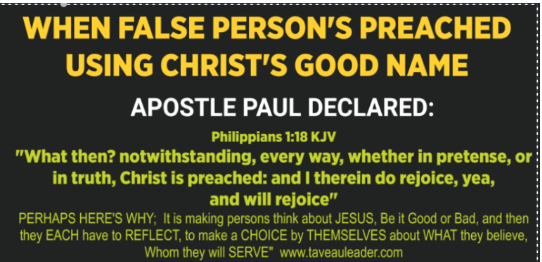
TD ASKS Ai:
Q. How would you describe Jesus the Messiah’s form of government for the apostle and the church like the Hebrew Temple style order or what?
Ai RESPONDS:
Jesus did not establish a specific governmental or administrative structure for His apostles or the early Church that mimicked the Hebrew Temple style order. While the Hebrew Temple had a hierarchical structure with various roles and responsibilities, Jesus’ approach to governance within the Church differed in significant ways.
Jesus emphasized a relational and transformative model of leadership based on love, servanthood, and mutual submission. He taught His disciples to lead by example, to serve one another, and to prioritize humility and selflessness. This approach stood in contrast to the hierarchical structures and power dynamics often associated with institutionalized religious systems.
Rather than establishing a formal organizational structure, Jesus focused on cultivating a community of believers who would follow His teachings and the leading of the Holy Spirit. The early Church, under the guidance of the apostles, operated as a relational and decentralized community where members shared resources, supported one another, and sought the leading of the Spirit in decision-making.
The apostles played a crucial role in teaching, guiding, and establishing the early Christian communities. They were entrusted with the responsibility of transmitting Jesus’ teachings and providing spiritual oversight. However, their leadership was not characterized by a rigid hierarchy but rather by a sense of collaboration and shared responsibility.
In the early Church, decisions were often made collectively through consensus, prayer, and seeking the guidance of the Holy Spirit (Acts 15:28). The apostles and other leaders worked together in unity, utilizing their gifts and discernment to ensure the growth and welfare of the Church.
It is important to note that as the Church expanded and encountered different cultural contexts, it did adopt certain organizational structures and leadership roles to effectively carry out its mission. However, the core principles of servant leadership, love, and mutual submission remained foundational.
In summary, Jesus’ form of government for the apostles and the early Church emphasized relational leadership, mutual submission, and collaboration rather than a rigid hierarchical structure. It was focused on the transformation of individuals and the establishment of a community marked by love, service, and the leading of the Holy Spirit.

TD ASKS:
Q. When did the use of hierarchy in ministry come into the First Church?
Ai REPLIES:
The use of hierarchy in ministry within the early Church developed over time, as the Church grew and faced various challenges and organizational needs. While the early Church initially operated in a more decentralized and communal manner, certain hierarchical structures and leadership roles gradually emerged.
In the New Testament, we see indications of developing hierarchical structures and roles within the early Church:
The Twelve Apostles: The apostles held a unique and foundational role in the early Church. They were specifically chosen by Jesus, and they played a significant part in establishing and guiding the early Christian communities. Their authority and leadership were widely recognized and respected.
Elders and Overseers: As the Church expanded, there was a need for local leadership and governance. The terms “elders” and “overseers” are used interchangeably in the New Testament to refer to those responsible for shepherding and overseeing the local congregations. These leaders provided spiritual guidance, taught, and exercised authority within their respective communities.
Deacons: The role of deacons emerged to address practical and administrative needs within the Church. The first mention of deacons is found in Acts 6, where individuals were chosen to serve in practical matters, such as distributing food to widows. The role of deacons involved serving the community, assisting with practical needs, and supporting the work of the elders.
Pauline Epistles: In the letters written by the apostle Paul, we see further development of hierarchical structures within the Church. Paul instructs Timothy and Titus, his trusted co-workers, to appoint overseers and deacons in various local churches. These instructions reflect a growing need for leadership structures to ensure the proper functioning and order within the expanding Church.
NOTE THIS ….It’s important to note that while hierarchy emerged in the early Church, the principles of servant leadership, mutual submission, and love were still emphasized. Leaders were expected to shepherd and serve the flock, rather than exerting authoritarian control.
The development of hierarchy in the early Church can be seen as a response to the growing needs of the community and the desire for effective governance and organization. However, it is essential to approach the study of Church history with an understanding that the specific structures and practices varied across different regions and communities during that time.

The World, the Flesh and the You Know What!
TAVEAU ASKS
Q. AUTHORITARIAN FIRST ROOTS...When did (and also now) where does authoritaritian control come into the First Church?
Ai REPLIES:
Authoritarian control, similar to the concepts of hierarchy and power dynamics, can emerge in any organization or institution, including the Church. While the early Church initially operated with a sense of equality and mutual submission, over time, as the Church grew and faced various challenges, elements of authoritarian control may have entered certain contexts within the Church. It is important to note that these instances were not universal across the entire early Church but occurred in specific regions or communities.
Historical Context: As the Church expanded beyond its Jewish roots and encountered different cultures and societal structures, it faced the influence of Roman and Hellenistic society, which often had authoritarian power structures. In some cases, these societal norms could have influenced the leadership and governance structures within certain Christian communities.
Emergence of Bishops and Clergy: As the Church grew and organized itself, the role of bishops and clergy emerged. This development brought with it the potential for centralized authority and hierarchical structures. Over time, this led to the development of a clerical class with increasing power and control within the Church.
Church-State Relationship:
In later centuries, particularly after Christianity became the official religion of the Roman Empire, the Church became entwined with political power. This fusion of Church and state led to instances where the Church wielded significant authority and employed authoritarian control, particularly in matters of doctrine and discipline.
Modern Context:
In the present day, authoritarian control can still exist in certain parts of the Church, although it is important to recognize that this is not the case universally. Within various Christian denominations and organizations, issues of power, control, and authoritarian leadership can arise. These instances can manifest in oppressive leadership styles, lack of accountability, and misuse of authority.
It is important to distinguish between the presence of authoritarian control within certain contexts and the core teachings and principles of Christianity. The teachings of Jesus emphasize love, humility, servant leadership, and mutual submission. Christians are called to discern and challenge any forms of authoritarian control that contradict these teachings, and to strive for leadership that is characterized by the spirit of Christ’s example
TAVEAU AGAIN WANTS TO KNOW IF CHRIST, FIRST CHURCH USES EPHESIANS 5:21 RATHER OVERSEER COVERING AUTHORITARIAN “BIG BOSS”
Ai ANSWERS:
The interpretation and application of Ephesians 5:21, which states, “Submit to one another out of reverence for Christ,” can vary among different Christian traditions and individuals. It is important to note that the interpretation of this verse should be done in the context of the broader teachings of the Bible.
In the context of the First Church, as described in the New Testament, the emphasis was on love, humility, and mutual submission among believers. Jesus taught His disciples to serve one another and to prioritize love and unity within the community of believers. The apostles, who were appointed by Jesus, also emphasized the importance of unity, humility, and mutual support among the members of the early Church.
While there were leadership roles within the early Church, such as apostles, elders, and pastors, the focus was not on establishing an authoritarian big boss or a hierarchical structure. Instead, leadership was intended to serve and shepherd the community, following the example of Jesus as the Good Shepherd (John 10:11).
It is important to remember that the Bible encourages believers to respect and submit to spiritual leadership that aligns with the teachings of Christ. However, this submission should be based on the principles of love, humility, and mutual respect rather than an authoritarian, top-down structure.
Different Christian denominations and local churches may interpret and apply Ephesians 5:21 and other related passages differently. Some emphasize a more hierarchical structure with an emphasis on submission to specific church leaders, while others emphasize the priesthood of all believers and mutual submission among all believers.
Ultimately, individuals and communities within the Church should strive to embody the teachings of Christ, seeking love, unity, and humility in their relationships and interactions with one another.
FOR ANYONE’S RECORD TAVEAU ASKS AI ABOUT LEADERSHIP STYLES AND DEFINITIONS
In the context of the Bible, there are several leadership styles and principles that can be observed. Let’s explore the differences between authoritarian leadership, persuasive leadership, and servant leadership:
Authoritarian Leadership in the Bible:
There are instances in the Bible where leaders exhibited authoritarian tendencies, exercising control and demanding obedience without considering the input or needs of others. An example can be seen in King Saul, who ruled over Israel in the Old Testament. Saul’s leadership was marked by his self-centeredness, disobedience to God, and a lack of concern for the well-being of his people. This style of leadership often leads to negative consequences and can be contrasted with more positive models of leadership in the Bible.
An authoritarian leader exercises control and authority over others in a commanding and autocratic manner. They typically make decisions without seeking input or consensus from others and expect strict obedience from their subordinates. The focus is on maintaining power and control rather than fostering collaboration or empowerment. Authoritarian leaders often enforce their directives through a top-down approach and may use fear, coercion, or punishment to maintain discipline.
Persuasive Leadership in the Bible:
Persuasive leadership, also known as transformational leadership, is characterized by a leader’s ability to inspire and influence others through effective communication, vision, and motivation. This leadership style seeks to build consensus, encourage collaboration, and bring about positive change. An example of persuasive leadership in the Bible can be seen in the apostle Paul, who used his persuasive abilities to spread the message of Christianity and guide early Christian communities. Paul appealed to reason, emotions, and shared values to influence others towards a common purpose.
Servant Leadership in the Bible:
Servant leadership is a leadership style that emphasizes humility, service, and selflessness. It is rooted in the teachings and example of Jesus Christ, who washed the feet of his disciples and taught that true leadership comes from serving others. In the Bible, servant leaders are called to prioritize the needs of others, seek their well-being, and empower them to reach their full potential. Jesus is the ultimate example of a servant leader, as he sacrificed himself for the sake of humanity. This leadership style encourages collaboration, empathy, and a focus on the greater good.
A servant leader, is a leadership style characterized by a focus on serving and supporting others. Servant leaders prioritize the needs and well-being of their followers and work to empower and develop them. They lead with humility, empathy, and a desire to serve the greater good. Rather than wielding authority and control, servant leaders seek to inspire and influence through their example and by creating a supportive and inclusive environment. They encourage participation, collaboration, and personal growth among their team members
SERVANT LEADER VS TOP CONTROL:
While authoritarian leadership focuses on control, persuasive leadership emphasizes influence, and servant leadership centers on service and selflessness. The Bible provides examples of different leadership styles, illustrating the consequences and virtues associated with each approach.
A LEADERS DEMEANOR, OFFICE, AUTHORITY “TONE”.
(this pertains to using Authoritarian Ministry)
TD ASKS:
Define the authority demeanor (“coming across as”) of a person who is “strident”
Ai RESPOND
Strident:
The term “strident” is an adjective that describes something or someone as loud, harsh, or forceful in expressing opinions, demands, or criticisms. It implies a strong and often aggressive or contentious tone or manner. A strident person or statement is characterized by being vehement, shrill, or uncompromising in their approach, often provoking strong reactions or disagreements. It suggests a lack of flexibility or willingness to consider alternative viewpoints.

TD WANTS TO KNOW ABOUT THESE DOCTRINES WHICH ARE MINGLED IN THE CURRENT MINISTRIES:
TD ASKS ABOUT DOCTRINES OF THE NICOLAITANS
TD ASKS AI
Define and describe Doctrines of the Nicolaitans and why God hates them and how they entered the first church. And are they there right now?
AI RESPONDS:
The Nicolaitans were mentioned in the book of Revelation in two separate instances, in Revelation 2:6 and 2:15. While there is limited information provided about them in the Bible, their doctrines and practices were criticized and condemned by Jesus.
Doctrines of the Nicolaitans: The exact nature of the Nicolaitan doctrines is not explicitly described in the Bible. The term “Nicolaitans” is derived from the Greek words “Nikolaos” (meaning “conqueror of the people”) and “laos” (meaning “people”). Some scholars speculate that the Nicolaitans may have advocated for a form of hierarchical leadership or a separation between the spiritual elite and the common people.
God’s Displeasure: In Revelation 2:6, Jesus commends the church in Ephesus for hating the deeds of the Nicolaitans, implying that these deeds were contrary to God’s will. In Revelation 2:15, Jesus rebukes the church in Pergamum for tolerating those who held the teachings of the Nicolaitans. The exact reasons for God’s displeasure with the Nicolaitans are not explicitly stated, but it is clear that their doctrines and practices were viewed negatively.
Entry into the First Church: The Bible does not provide specific details about how or when the Nicolaitan teachings entered the first Church. It is possible that these teachings emerged as a deviation or distortion of the early Christian message. Over time, as the Church expanded and encountered different cultural influences, various false teachings and practices crept in. The Nicolaitan doctrines may have been one such example.
Current Existence:
It is unclear whether the Nicolaitan doctrines and practices continue to exist in the Church today. The term “Nicolaitans” does not refer to any specific group or sect that is identified in modern times. However, some interpret the warnings against the Nicolaitans as a caution against hierarchical and oppressive leadership structures that may emerge in the Church.
TAVEAU INTERJECTS THIS FROM OTHER PRIOR BIBLE STUDIES (to value and to hear God)
TD NAMES THE “DOCTRINES OF THE NICOLAITANS possibly as “Nico” meaning “NIKE”… to control..an LAOS ..means the People: THE DOCTRINE OF THE NICOLAITANS IS USE OF FALSE AUTHORITY TO GET ONE’S OWN WAY .meaning top dog ministry leader recurring pressure, manipulation, overuse of hierarchy, instill fear, shame, peer pressure, witchcraft to TOP CONTROL REASON to serve the GRASS ROOTS which is mired in this in too many crayzmatics.
BACK TO THE Ai REPLY
It is important to remember that the teachings and practices of the early Church were guided by the apostles and their understanding of Jesus’ teachings. The condemnation of the Nicolaitan doctrines serves as a reminder to guard against teachings or practices that deviate from the core message of love, humility, and service found in Christ’s teachings. Christians are called to discern and reject any teachings or practices that contradict the principles of the Gospel.
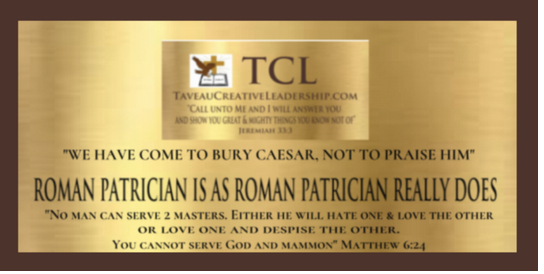
TD ASKS Ai
Q. DEFINE but also Describe Roman patricianism in light of the Christ First Church and modern church
Ai ANSWERS:
Roman patricianism refers to the social and political system of ancient Rome, where the patricians were the wealthy and aristocratic elite class. They held significant power and influence within Roman society, often monopolizing political offices and controlling economic resources.
In the context of the Christ First Church and the modern church, Roman patricianism serves as a point of contrast rather than a direct influence. The early Christian movement, including the First Church, emerged in a different cultural and social milieu than the Roman patrician system. The teachings and values of Jesus and the early apostles emphasized humility, servanthood, and equality among believers.
Christ First Church: The First Church, established by the apostles and early disciples, sought to embody the teachings of Jesus and the principles of the kingdom of God. It was characterized by a sense of community, sharing resources, and mutual support. The early Christians did not adhere to the hierarchical and elitist structures of Roman patricianism but instead emphasized love, equality, and unity in Christ. They considered themselves as part of a new spiritual family, where all members were valued and important.
Modern Church: . Many churches today emphasize servant leadership, equality, and the priesthood of all believers. The focus is on fostering a sense of community, nurturing spiritual growth, and engaging in acts of service and social justice.
TAVEAU INTERJECTS ABOUT PATRICIANISM TD submits that we can defines Roman Patriancism in modern day sr ministry as “stern Aristocratic” “bowing and scraping” to top leaders…it breeds accusing false witness…class systems, much ministry competition and Big I Little You of right now…Also it puts pressure on the immature with ” need to be elite.” Also it’s tends toward merchandising, Big Big Blessed..”respects only certain types of persons” may be ‘exclusive rather divere inclusive”…includes much display of wealth, owning many possessions and/ may idolize the top office, which births many would be copy cats and the need to the next famous, renown, “Christian pop Celebrity” this Fruit of Demas even Eli I SAMUEL top priesthood is rampant in PARTS of TV Media effect certain types of ministry.
, This ministry uses performance, achievement and focuses much on it’s own self own turf and has the Boys, Girls Clubs, elegant and elite but “big respecter of persons ” GOOGLE See the traits of Aristocratic often cruel enslaving impure Roman Patricianism in WIKIPEDIA
BACK TO AI:
In summary, Roman Patricianism, with its emphasis on elitism and hierarchy, stands in contrast to the teachings and values of the Christ First Church and the modern church. The early Christians sought to embody the teachings of Jesus, promoting love, humility, and equality among believers. The modern church, while facing its own challenges, continues to strive towards these ideals, emphasizing servant leadership, community, and the equality of all believers in Christ.

TAVEAU ASKS Ai:
Q. In any part of the Old or New Testament did God appoint priests, prophets, apostles, pastors to” target” “call them non church goers” “to accuse them, and shame “people for “not attending church ( “for not fellowshipping with the saints’ for not being an official church member? For not being Under their spiritual governing authority? for being a church hopper (means going to more than one fellowship?)
AI Replies:
In the Old Testament, God did establish a priesthood within the Israelite community. The tribe of Levi was set apart for priestly duties, and Aaron and his descendants were appointed as priests to carry out religious rituals and offerings in the tabernacle and later in the temple. Their role was primarily focused on offering sacrifices, maintaining the sanctity of the sanctuary, and teaching the Law of God to the people (Exodus 28-29; Leviticus 8-10; Numbers 3-4).
Prophets were also raised up by God throughout the Old Testament to deliver His messages, call the people to repentance, and speak on His behalf. Their role was not specifically tied to targeting people for not attending a particular gathering or being an official member of an organized religious institution. Instead, their primary function was to convey God’s word and bring spiritual guidance and correction to the people of Israel.
In the New Testament, Jesus appointed the twelve apostles to be His closest followers and witnesses to His ministry. They were entrusted with the task of spreading the Gospel, establishing and nurturing Christian communities, and teaching the teachings of Jesus. While their role involved leading and shepherding the early Church, there is no specific indication that they were instructed to target individuals for not attending a particular gathering or being a member of a specific church.
Regarding pastors or shepherds, the term is used in the New Testament to refer to those who provide spiritual leadership and care for the local church. Their role is primarily focused on teaching, guiding, and nurturing the believers within their congregation, encouraging them in their faith and equipping them for ministry (Ephesians 4:11-12; 1 Peter 5:1-4).
KEY POINT….Nowhere in the Bible is there a specific instruction or mandate to target individuals for not attending church, not being official members, or being church hoppers (attending multiple fellowships). The emphasis of the Bible is on the importance of believers gathering together for worship, teaching, fellowship, and mutual encouragement (Hebrews 10:24-25). However, the specific form and structure of the Church, including membership and attendance, have varied throughout history and across different cultural contexts.
It is important to note that while the Bible does not command targeting individuals in the ways described, the New Testament does encourage believers to actively engage in fellowship, to seek and support spiritual leadership, and to contribute to the well-being and growth of the local church community. However, the manner in which this is practiced can vary among different Christian traditions and cultural contexts.
Ai Again States:
In the Old and New Testaments, there is no specific indication or instruction from God to priests, prophets, apostles, or pastors to target, call out, accuse, shame, or engage in negative actions towards individuals for not attending church, not fellowshipping with the saints, not being official church members, or being church hoppers (attending multiple fellowships).
While the Bible encourages believers to gather together, engage in fellowship, and participate in the life of the Church, there is no directive to shame or condemn those who do not adhere to specific church attendance or membership practices. The emphasis in the Bible is on love, acceptance, and the nurturing of relationships within the Christian community.
The role of priests, prophets, apostles, and pastors in the Bible is primarily focused on teaching, guiding, shepherding, and equipping believers for the work of ministry, rather than targeting or shaming individuals for their church attendance or membership status. Their purpose is to encourage spiritual growth, provide guidance, and help believers deepen their relationship with God and others.
It is important to approach matters of church attendance, fellowship, and membership with grace, understanding that individual circumstances, personal convictions, and cultural factors can influence how believers engage with the Church. While regular participation in a local church community is encouraged, the focus should be on fostering a spirit of love, inclusion, and mutual support rather than shaming or accusing those who may have different patterns or preferences in their church involvement.


LEADER WOMEN
TAVEAU WANTS THE AI TO SHARE THE IMPARTIAL VIEW OF JESUS TOWARDS ALL KINDS OF WOMEN:
SHE ASKS: How did Jesus regard women? How did he treat women? His mother?
THE Ai RESPONDS:
Jesus displayed a unique and revolutionary attitude towards women during His ministry. He treated women with dignity, respect, and equality, challenging the societal norms and cultural expectations of His time. Here are some key aspects of how Jesus regarded and treated women:
Dignity and Worth: Jesus affirmed the inherent dignity and worth of women. He recognized them as valuable individuals created in the image of God, deserving of respect and honor. Jesus consistently acknowledged the significance of women’s lives and their spiritual worth.
Inclusion and Acceptance: Jesus included women as His followers and welcomed them into His inner circle. He engaged in meaningful conversations with women, despite cultural taboos. For example, He spoke with the Samaritan woman at the well (John 4:1-42) and engaged in deep theological discussions with Mary, the sister of Martha (Luke 10:38-42).
Teaching and Discipleship: Jesus taught women, allowing them to sit at His feet and receive instruction alongside male disciples. He offered women the opportunity to learn and grow spiritually, affirming their capacity for understanding and discipleship.
Healing and Restoration: Jesus demonstrated compassion and care for women, healing them from various physical and emotional ailments. He restored their well-being and brought them into a renewed sense of wholeness, emphasizing their value and worth.
Respect for Mothers: Jesus honored His mother, Mary, throughout His life. He entrusted her care to the apostle John while He was on the cross (John 19:26-27). This act of ensuring her well-being exemplified His commitment to family relationships and respect for His mother’s role.
Resurrection Witnesses: Jesus chose women as the first witnesses to His resurrection, entrusting them with the significant task of proclaiming this pivotal event to the male disciples. This act of trust and inclusion highlights His recognition of women’s vital role in proclaiming the good news.
Overall, Jesus’ treatment of women reflected His radical commitment to equality, justice, and inclusivity. He challenged the cultural and religious norms of His time, elevating women’s status and affirming their value in God’s kingdom. His actions and teachings continue to inspire and shape the understanding of gender equality and dignity within Christianity.
TAVEAU ASKS
Q. Would you believe that Jesus the Messiah related to women, His mother,all women in Ephesians 5:21, not just men? Ephesians 5:21 “mutual submission in the reverential fear of the Lord”
Ai ANSWERS BACK:
Yes, it is reasonable to believe that Jesus the Messiah acted in alignment with the principles outlined in Ephesians 5:21 when it comes to His interactions with women, including His mother and all women. Ephesians 5:21 states, “Submit to one another out of reverence for Christ,” and this verse emphasizes mutual submission, humility, and respect among believers.
Throughout His ministry, Jesus consistently demonstrated a spirit of love, humility, and mutual submission towards all individuals, regardless of gender. He treated women with honor, dignity, and respect, often challenging the prevailing cultural norms of His time. His interactions with women reflect His commitment to valuing and affirming their equality and worth.
Jesus’ relationship with His mother, Mary, provides a significant example of this. He demonstrated love and care for His mother, even as He fulfilled His mission. For instance, during the wedding at Cana (John 2:1-11), Jesus responded to Mary’s request by performing His first miracle, despite initially indicating that His time had not yet come. This interaction reflects His sensitivity and respect for His mother’s concerns and desires.
Furthermore, Jesus engaged in meaningful conversations with women, taught them, and welcomed their presence among His followers. He demonstrated compassion and healing towards women, addressing their physical and spiritual needs. He challenged societal expectations by affirming the value and importance of women’s voices and perspectives.
Overall, Jesus’ treatment of women aligns with the principles of mutual submission, respect, and love described in Ephesians 5:21. His actions and teachings serve as a model for how believers should relate to one another, valuing and honoring the inherent worth and equality of all individuals, regardless of gender.
TD ASKS:
Q. Concerning St Paul or the first Apostles who governed the Church..how they regard women, leader women, all women?
Ai RESPONDS:
The apostle Paul and the other early apostles played a significant role in governing and shaping the early Christian Church. Their teachings and actions regarding women varied to some extent, but it is important to understand their overall approach within the cultural context of their time. Here are some key points to consider:
Equality and Value: Paul and the early apostles recognized the equality and value of women in Christ. In Galatians 3:28, Paul declares, “There is neither Jew nor Greek, slave nor free, male nor female, for you are all one in Christ Jesus.” This verse emphasizes the equal standing of all believers in Christ, irrespective of gender.
Leadership and Ministry: While the New Testament predominantly highlights male leaders in the early Church, there are examples of women holding positions of leadership and influence. For instance, Phoebe is mentioned as a deaconess in Romans 16:1, and Priscilla is mentioned alongside her husband Aquila, instructing Apollos in Acts 18:26. Paul also commends various women for their work in ministry, such as Euodia and Syntyche in Philippians 4:2-3.
Instruction on Roles: Paul provides specific instructions regarding the roles of women in the Church. For instance, in 1 Timothy 2:11-12, he writes that women should learn in quietness and submission, not having authority over men. These instructions have been interpreted and applied differently across Christian traditions, with some emphasizing male leadership and others interpreting the passage as contextual to specific situations.
Cultural Context: It is crucial to recognize that Paul and the early apostles operated within a patriarchal society that held certain cultural norms and expectations regarding gender roles. While they addressed specific issues and challenges faced by early Christian communities, their teachings were influenced by the cultural milieu of their time.
It is essential to approach these biblical passages with care, recognizing that the early Church was navigating the intersection of God’s revelation and the cultural context in which it existed.
While there are differing interpretations and applications of these teachings, the overarching message of the New Testament is one of love, equality, and mutual respect among believers, regardless of gender.
TAVEAU LISTS LEADER VERSES WHICH RESPECT AND REFLECT “THE RELATIONSHIP“
PURE PAUL Ephesians 5:21 (KJV):
“Submitting yourselves one to another in the fear of God.”
Half Brother of Jesus, Pastor Church of JerusalemJames 3:17 (KJV):
“But the wisdom that is from above is first pure, then peaceable, gentle, and easy to be intreated, full of mercy and good fruits, without partiality, and without hypocrisy.”
Paul: Ephesians 4:1-3 (KJV): The Transformed Entire Walking it Out Community
“I therefore, the prisoner of the Lord, beseech you that ye walk worthy of the vocation wherewith ye are called, with all lowliness and meekness, with longsuffering, forbearing one another in love; endeavoring to keep the unity of the Spirit in the bond of peace.
Paul: Ephesians 2:14-15 (KJV):
“For he is our peace, who hath made both one, and hath broken down the middle wall of partition between us; having abolished in his flesh the enmity, even the law of commandments contained in ordinances; for to make in himself of twain one new man, so making peace.”
Pure Paul: Ephesians 4:32 (KJV):
“And be ye kind one to another, tenderhearted, forgiving one another, even as God for Christ’s sake hath forgiven you.“

TD ASKS: “SPIRITUAL COVERING” IS AN ENORMOUS LP AUTHORITY TEACHING in certain parts of the Christian ministry, mostly spirit filled, . Please give First Church Verses about “covering:
AI REPLIES
Here are a few Bible verses that mention the term “covering” or “cover”:
1 Peter 4:8 (NIV):
“Above all, love each other deeply, because love covers over a multitude of sins.”
Psalm 32:1 (NIV):
“Blessed is the one whose transgressions are forgiven, whose sins are covered.”
Exodus 40:3 (NIV):
“Place the ark of the covenant law in it and shield the ark with the curtain.”
1 Corinthians 11:6 (NIV):
“For if a woman does not cover her head, she might as well have her hair cut off; but if it is a disgrace for a woman to have her hair cut off or her head shaved, then she should cover her head.”
Psalm 91:4 (NIV):
“He will cover you with his feathers, and under his wings you will find refuge; his faithfulness will be your shield and rampart.”
TD ADDS
Let not forgive the church terms in modern day usage” Prayer Covering”
I WANT YOU TO SELAH ALL OF THIS..ADMITTEDLY THIS “SUBMISSION” TOPIC is HOT and ALSO DEEP and COMPLEX..but we’re willing to go there.
As their is “no fear in Christ’s Love”
Plus, there is no more space here to keep going. Part 3 is also finished and will post later (Wed)
ALL LOVE GIFTS SEE GIVE LINK AT THE TOP OF THIS PAGE..and PLEASE PRAY “COVER ALL OF THIS AND ME ” IN PRAYER. Many thanks!
TO SOW INTO:
(C)2024 Taveau D’Arcy All copyrights reserved under international copyright laws, in conjunction with Ai



